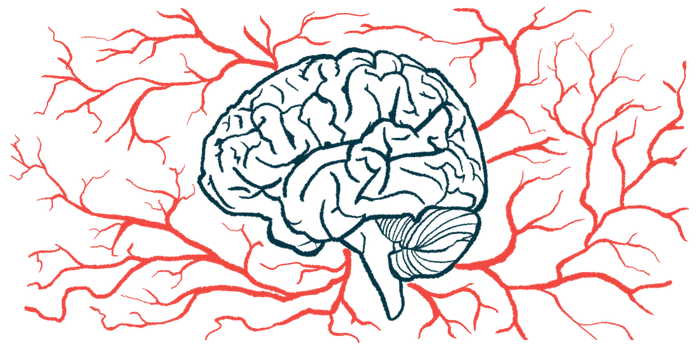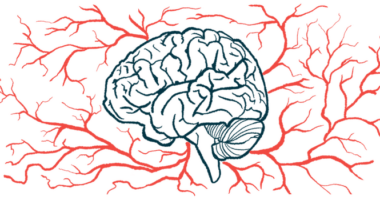MS Therapy EHP-101 Boosts Blood Vessel Growth, Targets Inflammation
Derived from cannabidiol, it also aided the integrity of the blood-brain barrier

EHP-101, an experimental treatment being clinically tested for multiple sclerosis (MS), activates a cellular signaling pathway that promotes blood vessel development and reduces inflammation following brain injury, a new study shows.
The findings continue to support the use of EHP-101 in MS, a condition marked by excess inflammation and disruption to the blood vessels that protect the brain from damaging cells and substances that circulate in the blood.
The study, “A cannabidiol aminoquinone derivative activates the PP2A/B55α/HIF pathway and shows protective effects in a murine model of traumatic brain injury,” was published in the Journal of Neuroinflammation. The work was supported in part by Emerald Health Pharmaceuticals, the company developing EHP-101.
The results “validate EHP-101’s unique ability to address key disease factors associated with the complex pathophysiology of fibrotic and demyelinating diseases such as [systemic scleroderma] and MS through complementary specific mechanisms of action,” Alain Rolland, PhD, Emerald’s chief operating officer, said in a company press release.
EHP-101 is a derivative of cannabidiol or CBD, a nonpsychoactive compound in the cannabis plant. In preclinical MS studies, it has shown potential for reducing inflammation and promoting repair of the myelin sheath, a fatty covering around nerve fibers that gets damaged in MS.
Emerald is conducting a Phase 2 clinical trial (NCT04909502) to test EHP-101 in people with relapsing-remitting MS (RRMS) or active secondary progressive MS (SPMS).
About 50 patients ages 18-55 are being recruited at sites in the U.S. and Australia. The main goal is to assess the therapy’s safety, but measures of its effectiveness will be assessed as a secondary goal.
Emerald is also conducting another Phase 2 trial (NCT04166552) of EHP-101 on systemic sclerosis.
Although EHP-101 has shown anti-inflammatory properties, its specific biological mechanisms of action remain incompletely understood. A team led by scientists at Emerald conducted experiments to learn more.
Prior research suggested EHP-101 can activate the hypoxia inducible factor (HIF) pathway, which normally happens under low-oxygen conditions. The pathway helps cells survive in these conditions and promotes new blood vessel development in the affected tissues, which can help deliver more oxygen.
The researchers here showed that EHP-101’s ability to activate the HIF pathway is dependent on the activity of a two-protein complex called PP2A/B55 alpha. This complex is known to be a driver of HIF by blocking the activity of a protein called PHD2, which normally helps “put the brakes” on this molecular pathway.
In cells lacking either component of the PP2A/B55 alpha complex, EHP-101’s ability to activate HIF was substantially blunted, demonstrating the therapy probably acts through this complex. Further research to examine exactly how EHP-101 activates the complex is ongoing, the scientists said.
Further experiments confirmed EHP-101 could promote new blood vessel development in laboratory models.
The researchers also treated a mouse model of traumatic brain injury — damage caused by a physical injury — with EHP-101, which reduced motor problems and brain swelling.
The medication markedly reduced the number of immune cells entering the brain and reduced the inflammatory activity of resident brain cells such as astrocytes and microglia. It also improved the integrity of the blood-brain barrier, a cellular wall that helps protect the brain from infection and that becomes damaged in TBI.
Collectively, the results suggest EHP-101 “could improve the blood and oxygen supply to the brain, preventing infiltration of peripheral immune cells and reducing the level of” brain cell death in TBI and other neurological disorders, the researchers concluded.







